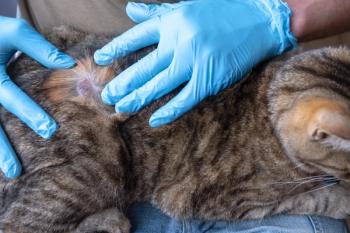
Camaraderie fades as competition swells
Poland, Ohio-It's been eight years since Dr. John Daugherty's face-off with other practitioners in his town. He's been badmouthed, backstabbed and even called a quack.
Poland, Ohio-It's been eight years since Dr. John Daugherty's face-off with other practitioners in his town. He's been badmouthed, backstabbed and even called a quack.
Yet the Poland, Ohio, practice owner resists countering insults. Instead, he blames market saturation, pointing to the dozen practices servicing roughly 65,000 residents in his region. Veterinarians are ethically barred from negatively speaking about colleagues, especially to clients. But when it comes to veterinary community infighting, practitioners across the country say Daugherty isn't alone.
"I've had real ugly experiences with a few practices, and it's frustrating," he says. "If there are disgruntled clients, badmouthing is a real easy way for practitioners to look good to them."
Triggering a widespread shift from colleague to competitor could be the rising number of veterinarians practicing in the United States. While there exists no concrete total for U.S. veterinarians, the American Veterinary Medical Association (AVMA) estimates that as of July 31, more than 92,000 DVMs were practicing in the United States, including 69,158 AVMA members, says Brent Heathcott, assistant director of Membership Services. Just last year the AVMA's totals topped out at 80,021, of which 66,997 were members. During the last decade, membership alone increased by 14,000, growing an average 2.5 percent each year, association leaders say.
Increased competition
Daugherty claims he doesn't need numbers to feel encroached upon by other practices. To alleviate the tension, he's confronted spiteful colleagues.
"They just deny it, so you reach a point when you throw your hands up in the air and give up," he says. "It's very competitive here. I'm building a new hospital right now, so I expect the badmouthing will start ratcheting up again."
Competition aside, the backbiting Daugherty experiences is a product of the times, says Dr. Warren Kaplan, a practitioner on Long Island since 1969.
A new era
Kaplan claims lack of camaraderie among veterinarians comes as a result of two major changes in the profession: autonomy and advertising.
"When I first started, there was no such thing as emergency service and many of the boarded specialties weren't founded yet," he says. "The veterinarians in my area had to work together to field weekend and evening emergency calls. In order to have a life, we tried to be on good relations."
That interdependence forced communication when it came to specialty cases, Kaplan adds. "We had certain veterinarians interested in different fields. With no specialty hospitals and very few specialists, we depended on each other.
"When one practitioner wasn't doing too well, everyone was legitimately upset about it," he says. "Now we try to put each other out of business."
Veterinary practice rivalries can, in many cases, be traced to the late 1970s, when the U.S. Supreme Court struck down an across-the-board prohibition on professional advertising. Since then, Yellow Pages ads in particular have driven knives into veterinary communities, Kaplan says.
Widening the watershed
"Veterinarians started to feel at a disadvantage if they didn't take out an ad boasting the cheapest fees or best service," he says. "It was the first crack in people acting unprofessional."
It was also when Kaplan became accustomed to hearing disparaging comments made against fellow veterinarians. "People have to protect their own turf, and badmouthing is one of the ways they do it," he says.
The rift between two Powell, Wyo., practitioners has become so vicious, neighboring veterinarian Dr. Teri Ann Oursler says she has a hard time staying out of it.
Caught in the middle
"I don't know any other way to deal with it but ignore them, and that's not easy to do," she says. "While I'm exclusively small animal, they're both mixed practices, constantly badmouthing and fighting for clients. They're worried about whose clients belong to whom instead of practicing good medicine."
For the most part, Oursler maintains good relationships with other DVMs in her area. But she's learned her lesson about meeting socially with them.
"We tried the camaraderie thing and all got together; that didn't go over very well," she says. "A week later my ex-boss sued me. He had fired me and then got mad when he overheard me saying I was starting a practice 30 miles away. It cost me a lot of money to fight his non-compete clause."
Kaplan says he longs for the time when knowing colleagues meant befriending them. Nowadays, he sees veterinary medicine more as a business than a medical profession. He rarely recognizes colleagues at meetings and has phoned to welcome other practitioners to his area only to receive no return calls. He misses knowing who's practicing down the block.
Amity lost
"I don't think we'll ever go back to the way it was," Kaplan says. "There are so many practices around that these veterinarians are hungry; they'll do anything they can to bring in more money. I don't think that attitude necessarily breeds collegiality. It certainly wins you no friends."
Newsletter
From exam room tips to practice management insights, get trusted veterinary news delivered straight to your inbox—subscribe to dvm360.




